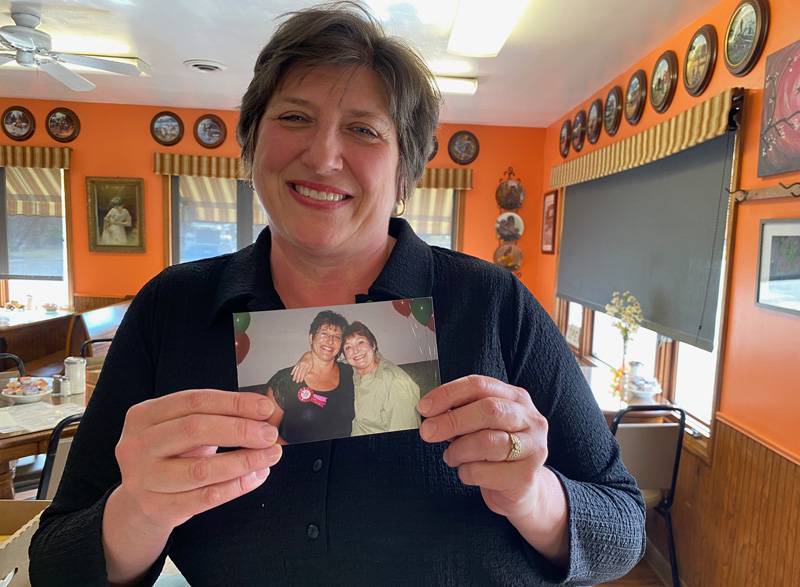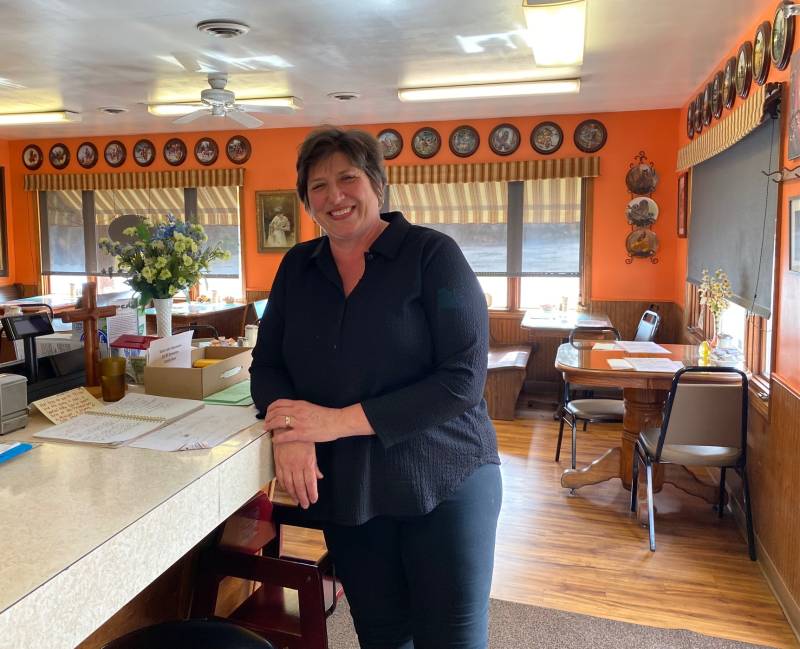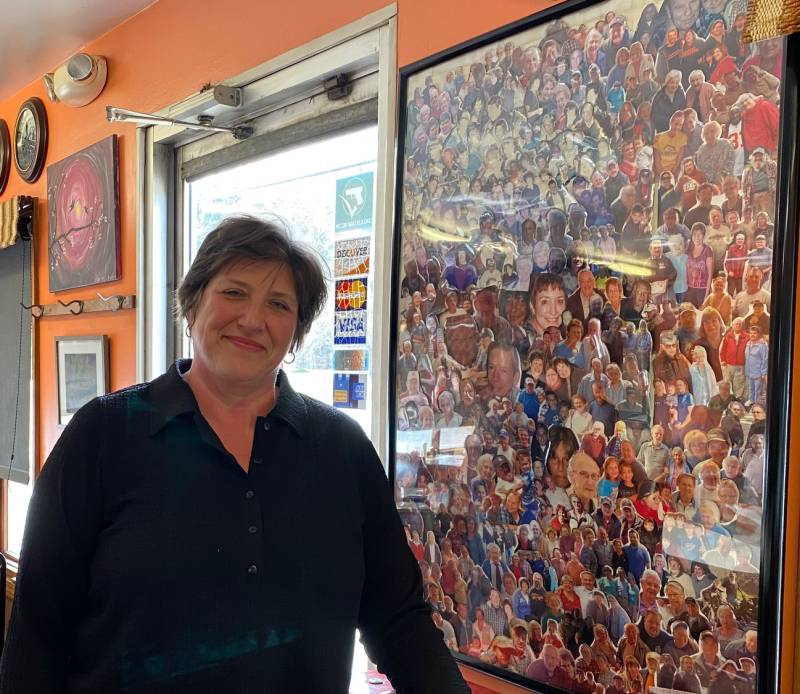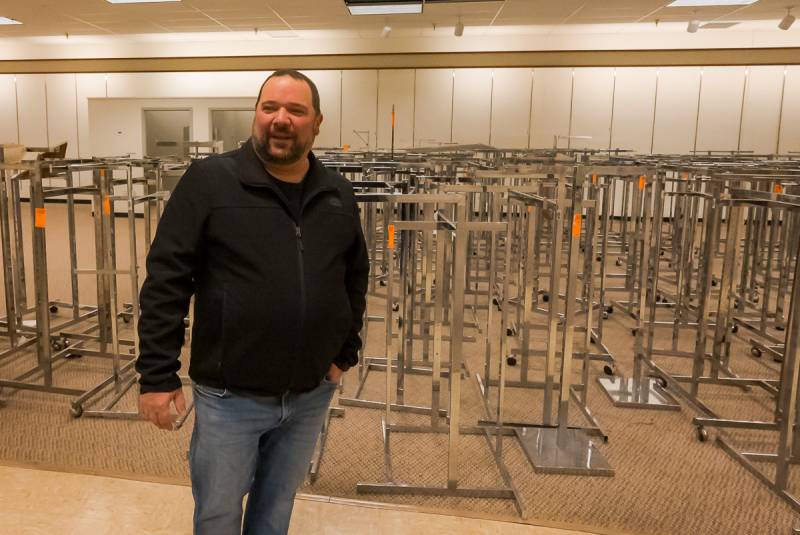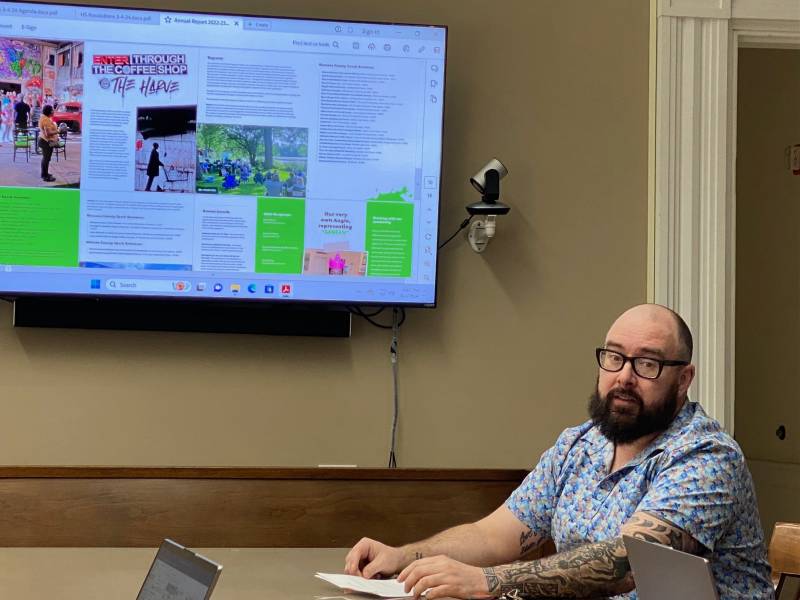Stafford facility a 'perfect setup' for counseling and treatment services site
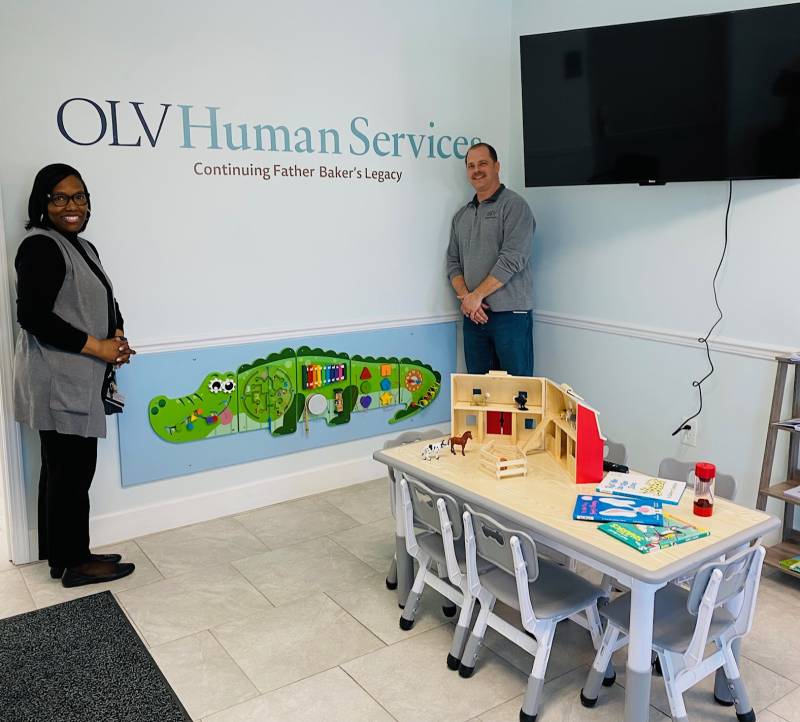
Photo by Joanne Beck
Two branches of Erie County-based OLV Human Services have chosen to widen their scope and settle into Genesee County under one roof to offer counseling, evaluation and treatment for children and adults.
One is the OLV Outpatient Counseling Clinic with each a part-time and a full-time clinical therapist and a psychiatric nurse practitioner, Chief Program Officer Sheila Hunt said.
“We wanted to expand into five different counties; we’re already in Erie and Niagara County. Genesee just made the most sense. So when we saw that this facility was for rent, we came out and took a look at it, and it just made the most sense for us to start here first, because it was perfect. It had this perfect setup for our operation clinic, and then it had the perfect setup for our evaluation and treatment clinic,” she said of the site at 5762 Route 5 in Stafford. “This is the first time we ventured out to a county outside of Erie County. So this is the first one, but we're not stopping here. Once we get this up and running, our strategic plan is to be known as a behavioral health provider, so we're going to keep forging ahead. There's a need, and we just want to help be a resource.”
Therapists will provide services for individuals and families for a variety of issues, including addiction, ADHD, depression, anxiety, sleep problems, domestic violence, grief, and psychosis, and are open to group sessions if there are appropriate numbers of individuals to form a group, Hunt said.
The nurse practitioner is licensed to do medication management, and most insurances are accepted, she said. All it takes is for the person, or a parent or teacher for a child, to refer for services, Hunt said. If someone doesn’t have transportation, OLV has a contract with a social care network and may be able to arrange for an Uber, she said.
“We support, prepare and empower the individuals that we work with,” she said. “We're not trying to come and take over, we just want to be an added resource to the providers that are currently out here.”
OLV has four brick-and-mortar offices and six satellite locations in Buffalo public schools, with plans to expand — possibly into Wyoming County next — as part of its strategic plan, she said.
Counseling services will begin on April 15. Hours for appointments will be 8:30 a.m. to 5:30 p.m. Tuesdays and Thursdays, 8:30 a.m. to 6 p.m. Wednesdays and 8:30 a.m. to 4:30 p.m. Fridays, with 9 a.m. to 1 p.m. Saturdays up for consideration if there’s a need for a weekend day. Eventually, the site will have Open Access, which will be available for walk-in appointments.
For more information or to make an appointment, call 716-828-7456 or go to Outpatient Counseling Clinic.
A second practice is the Evaluation and Treatment Center for kids aged 2 to 21 with any type of intellectual, developmental or learning disability. A staff of eight includes a medical director/pediatrician, psychologist, nurse practitioner, licensed behavioral analyst, behavioral technician, and occupational and speech therapists, Clinical Services Supervisor Chris Nalbach said.
“This is our first site branch. We just opened in Lackawanna in April 2024, so we’re already looking to kind of expand since then. We got a great opportunity to utilize this space in a different region that we haven’t been able to reach before,” Nalbach said. “We talked to some people at University of Rochester and (other practices), that stated that services were needed in this area as well.”
Hospitals and medical facilities across Western New York can have waiting lists up to two years long, he said, which is time that a child could be receiving treatment. Anyone suspecting his/her child of having any type of learning/developmental disability can fill out the center’s intake form and have the child evaluated and/or tested, he said.
“We look for autism, ADHD, or other types of disorders that we can evaluate and treat, and once we have a good diagnosis completed, we can move on to the therapy from there and whatever it takes to get the kids the services they need to provide it, and if not, we can refer to other places that would be able to.”
They will recommend a course for treatment, including an intense Parent-Child Interaction Therapy. There seems to be more autism, but it’s not so much that there are more cases of autism, he said, as there are more diagnoses of it — and more quickly and correctly than in the past.
There used to be about one in 150 diagnosed 20 years ago, he said, and now it’s one out of 36, according to ETC’s website. Staff is committed to “providing another option for families to help reduce these wait times and allow children to get the help they need as soon as possible.”
When working with children, no one is usually looking for those huge leaps and bounds, he said, but instead for incremental steps.
“There’s no cure for autism; it’s an improvement in functioning, things of that nature,” he said. “We’re really not looking at the massive success rate. We’re looking at the tiny little successes. If you look at the parents, when they look at their child and see that their child can talk back and say ‘Hi mom,’ that’s a huge success.”
The Stafford location will be opening later this summer on Mondays, and possibly also on the first and third Saturdays. For more information, call 716-828-7586 or go to Evaluation and Treatment Center.

Photo by Joanne Beck

Photo by Joanne Beck

